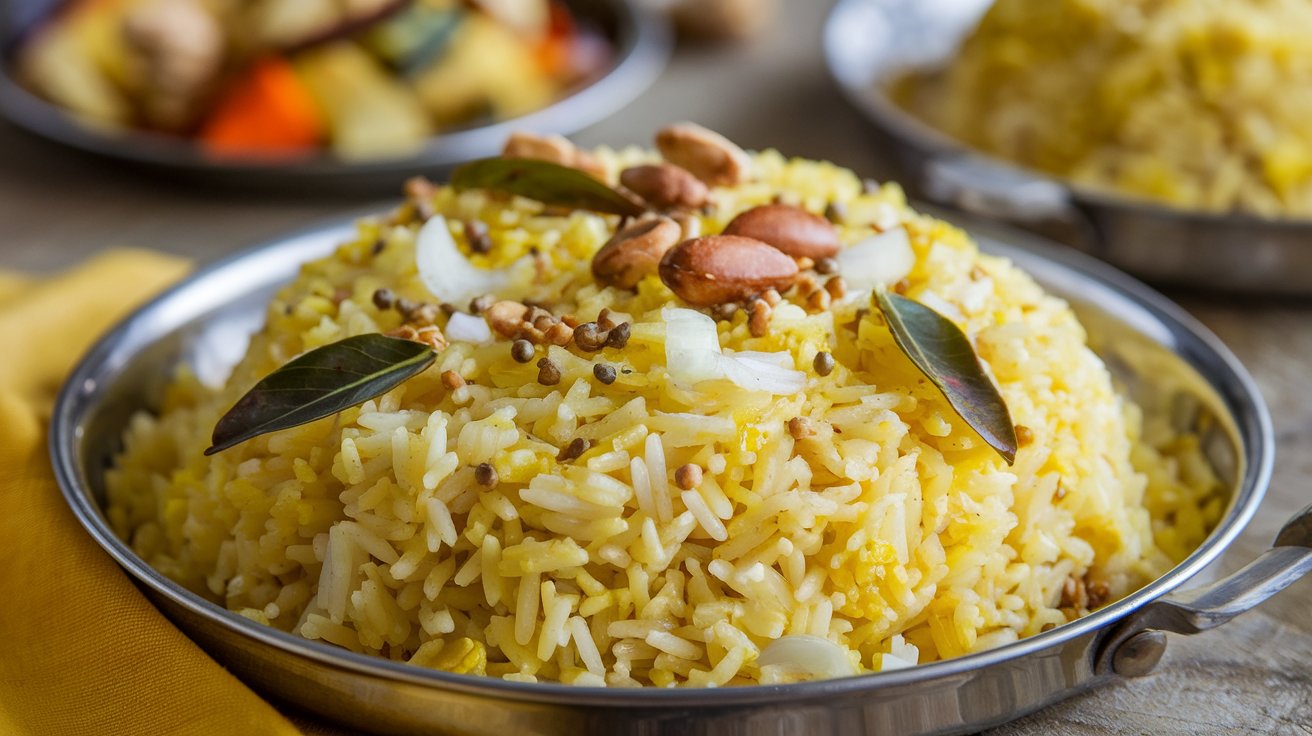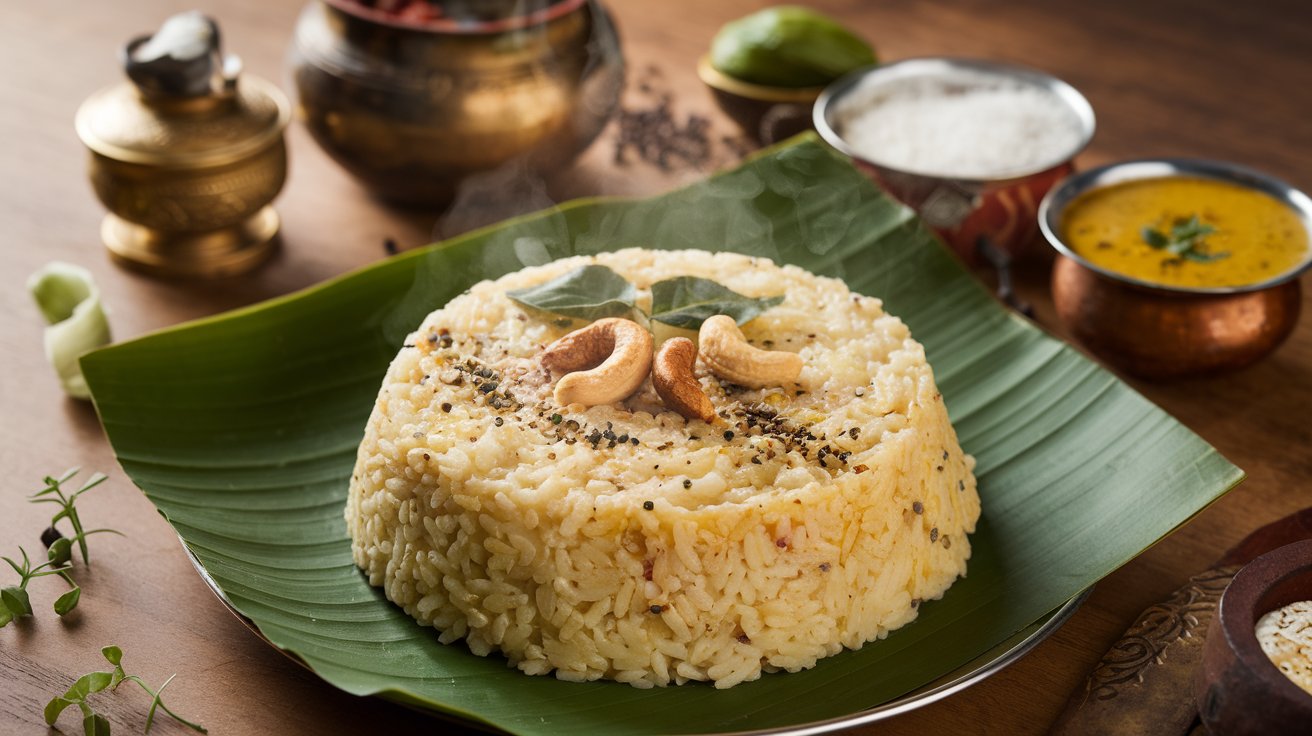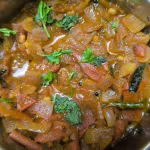

Join the Newsletter
Dive into quick, nutritious recipes, expert health tips, local food finds, and the latest in nutrition. Let’s explore healthier living together!
Savoring South Indian Delights
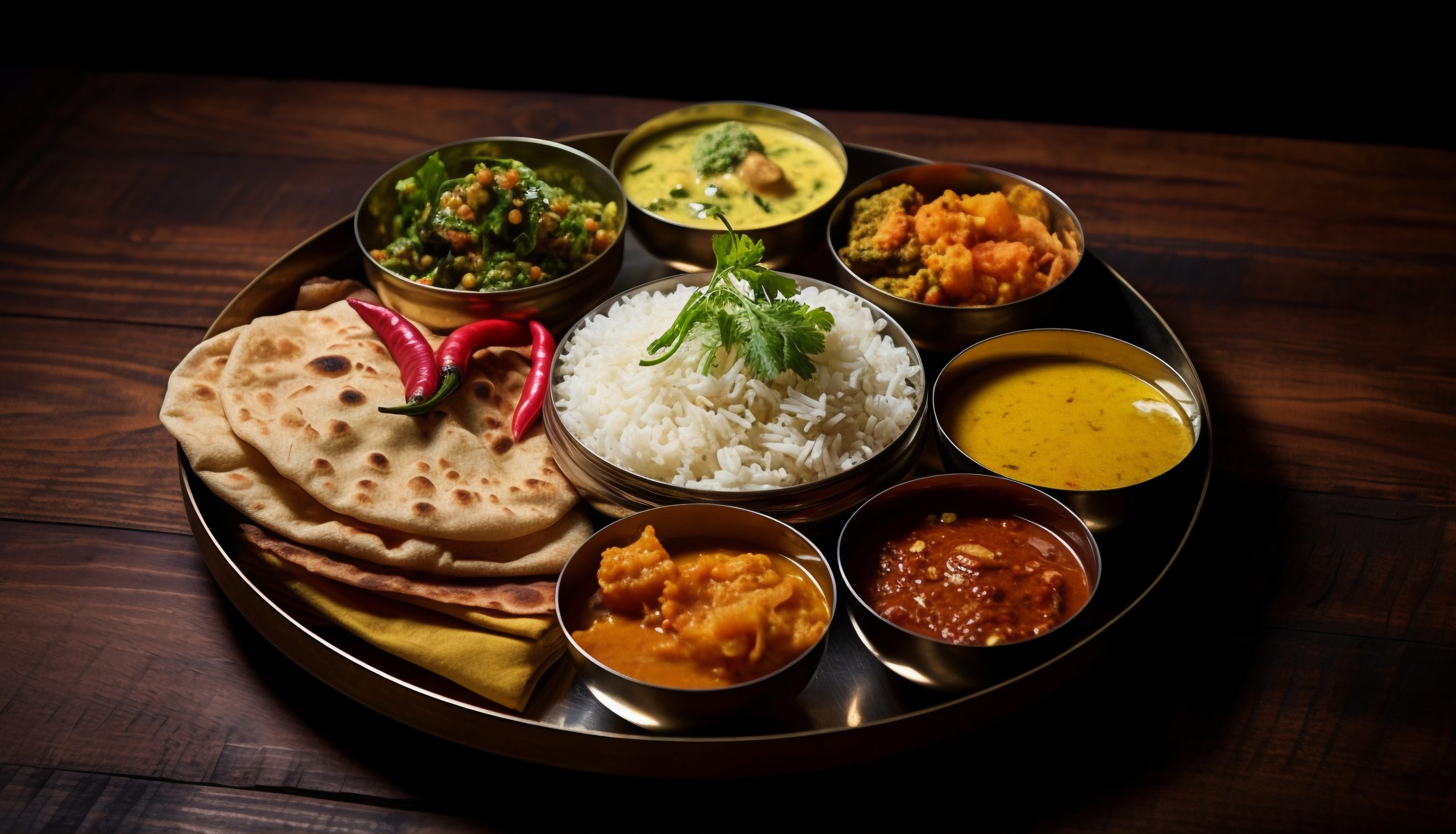
Affiliate Disclosure
Before reading this post, please be aware that some links in this article are affiliate links. This means that if you click on one of these links and make a purchase, we may earn a commission at no additional cost to you. We only promote products and services that we believe will be beneficial to our readers.
For more information, please read our full Affiliate Disclosure.
South Indian cuisine offers a mesmerizing array of flavors, colors, and aromas that celebrate the rich cultural heritage of the region. Stretching across Andhra Pradesh, Karnataka, Kerala, and Tamil Nadu, this diverse culinary tradition is a feast for the senses, each dish telling its unique story. In this article, we’ll dive into the essence of South Indian cooking, highlighting must-try dishes, the magic of spices, and the traditional dining rituals that make this cuisine so special.
The Essence of South Indian Flavors
At the heart of South Indian cuisine is its masterful use of spices, coconut, and tamarind. These ingredients come together to create dishes that are complex and deeply flavorful. Unlike many other Indian cuisines, South Indian food often emphasizes vegetarian dishes, although there is also a rich variety of non-vegetarian options. The cuisine is known for its harmonious blend of sour, sweet, spicy, and salty elements, delivering a well-rounded flavor experience.
Rice is a staple in South Indian meals, often serving as the base for many dishes. It’s commonly accompanied by various sides, each with its unique blend of spices and ingredients. Coconut appears in multiple forms—grated, chopped, or as coconut milk—adding a rich, nutty flavor. Meanwhile, tamarind introduces a distinctive tanginess, especially prominent in dishes from Tamil Nadu and Andhra Pradesh.
Must-Try South Indian Dishes
Dosa
A quintessential South Indian delight, dosa is a thin, crispy crepe made from a fermented batter of rice and lentils. Originating from Karnataka, dosa can be enjoyed plain or with various fillings. The masala dosa, filled with a spiced potato mixture, is especially popular and is typically served with coconut chutney and sambar, a flavorful lentil-based vegetable stew.
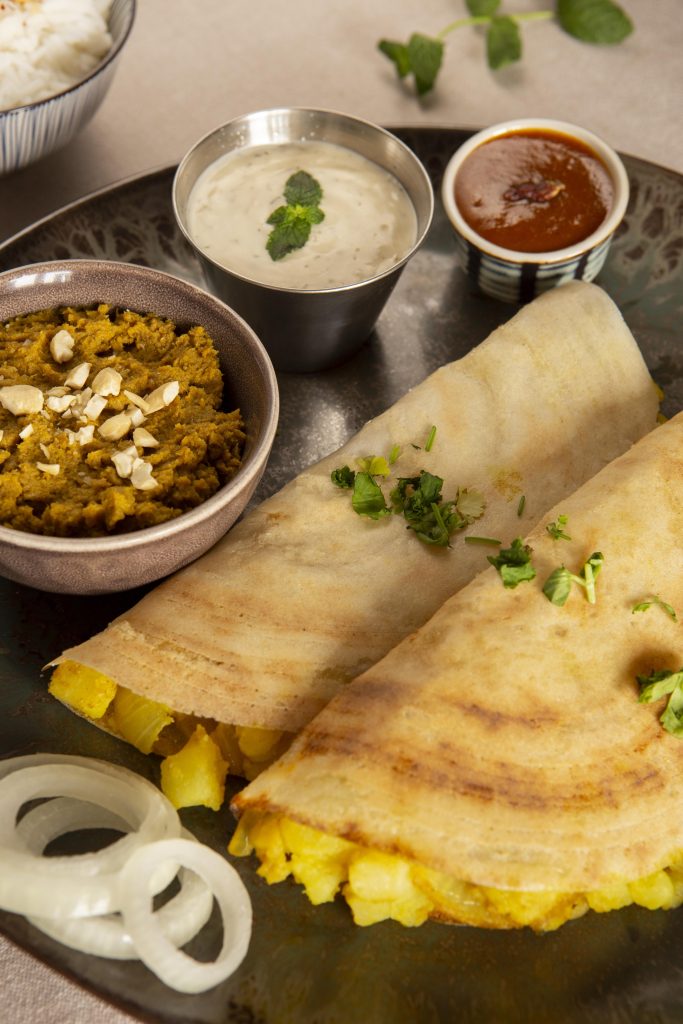
Idli
A quintessential South Indian delight, dosa is a thin, crispy crepe made from a fermented batter of rice and lentils. Originating from Karnataka, dosa can be enjoyed plain or with various fillings. The masala dosa, filled with a spiced potato mixture, is especially popular and is typically served with coconut chutney and sambar, a flavorful lentil-based vegetable stew.
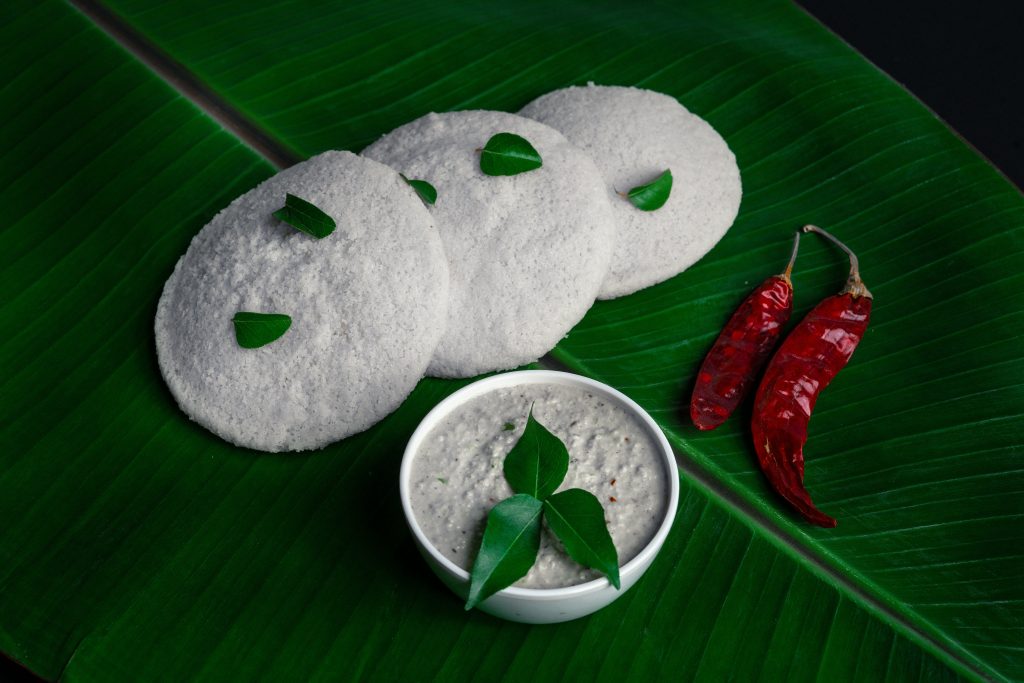
Sambar
Sambar is a hearty stew that embodies South Indian cuisine. Featuring lentils, tamarind, and a variety of vegetables, sambar is seasoned with a special spice blend known as sambar powder. This versatile dish is commonly enjoyed with dosa, idli, and rice, making it a fundamental component of South Indian meals.

Rasam
Known for its tangy and spicy profile, rasam is a popular soup in South Indian cuisine. Infused with tamarind, tomatoes, and a blend of spices, rasam is commonly paired with rice or savored as a soothing broth on its own. It is celebrated for its digestive benefits and is commonly prepared during colder months or when someone is feeling unwell.

Kerala Sadya
A festive meal from Kerala, sadya is a traditional vegetarian feast served on a banana leaf. This elaborate spread typically includes rice, sambar, avial (a mixed vegetable curry), pachadi (a yogurt-based side), and payasam (a sweet rice pudding). The variety and presentation of sadya make it a special dish, often enjoyed during festivals and celebrations.
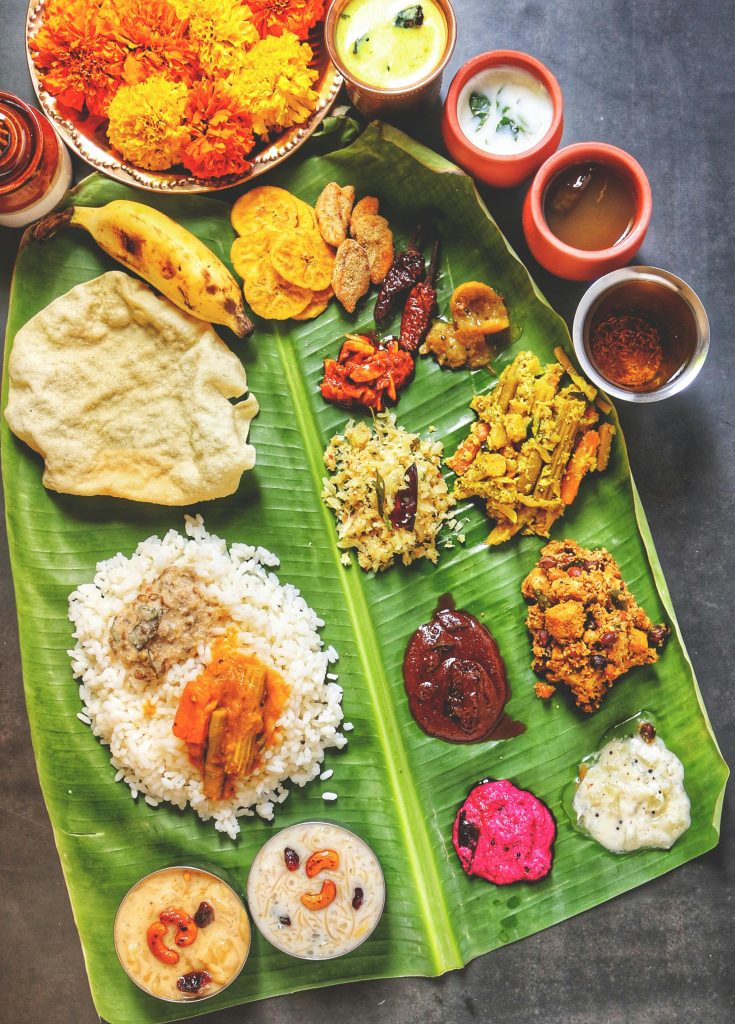
Biryani
Though biryani is enjoyed throughout India, South Indian varieties, particularly the Hyderabadi biryani, are exceptionally renowned. This fragrant rice dish is prepared with marinated meat or vegetables and a blend of aromatic spices. The method of slow cooking allows every grain of rice to absorb deep, flavorful spices, making biryani a beloved dish throughout the nation.
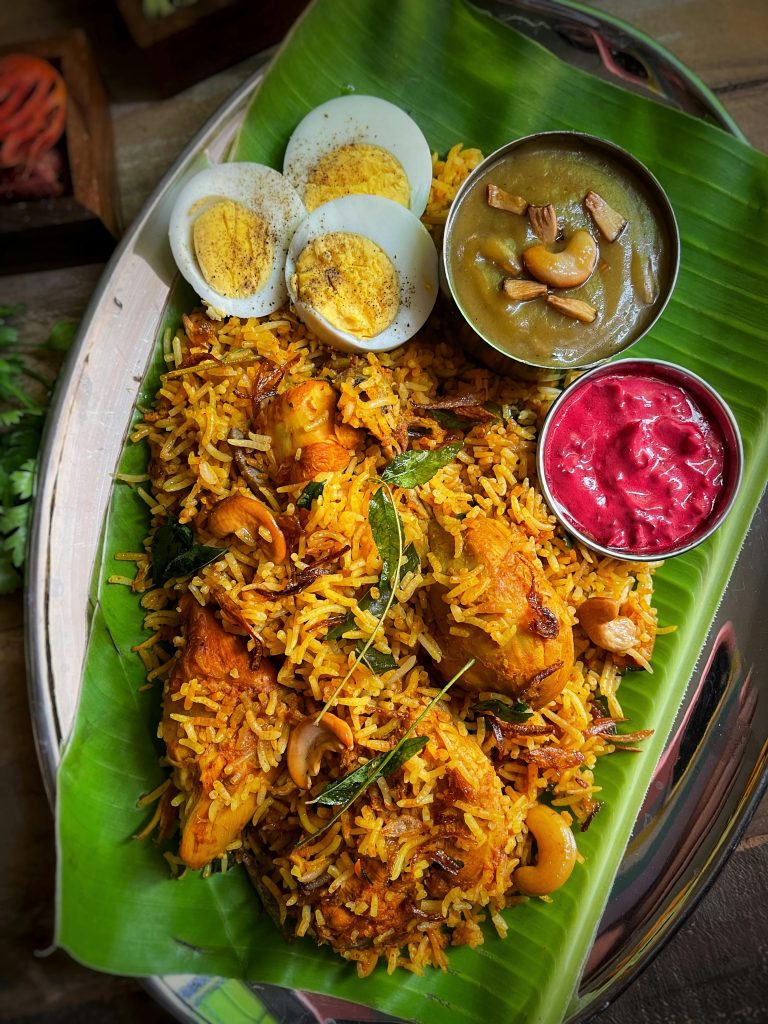
The Spice Symphony: A Journey Through South Indian Delight
A hallmark of South Indian cuisine is its unique and vibrant use of spices. Ingredients like mustard seeds, fenugreek, curry leaves, and dried red chilies play a crucial role in creating the bold flavors characteristic of South Indian dishes. These spices are typically sautéed in hot oil, which draws out their essential oils and intensifies the overall fragrance and flavor of the dish.
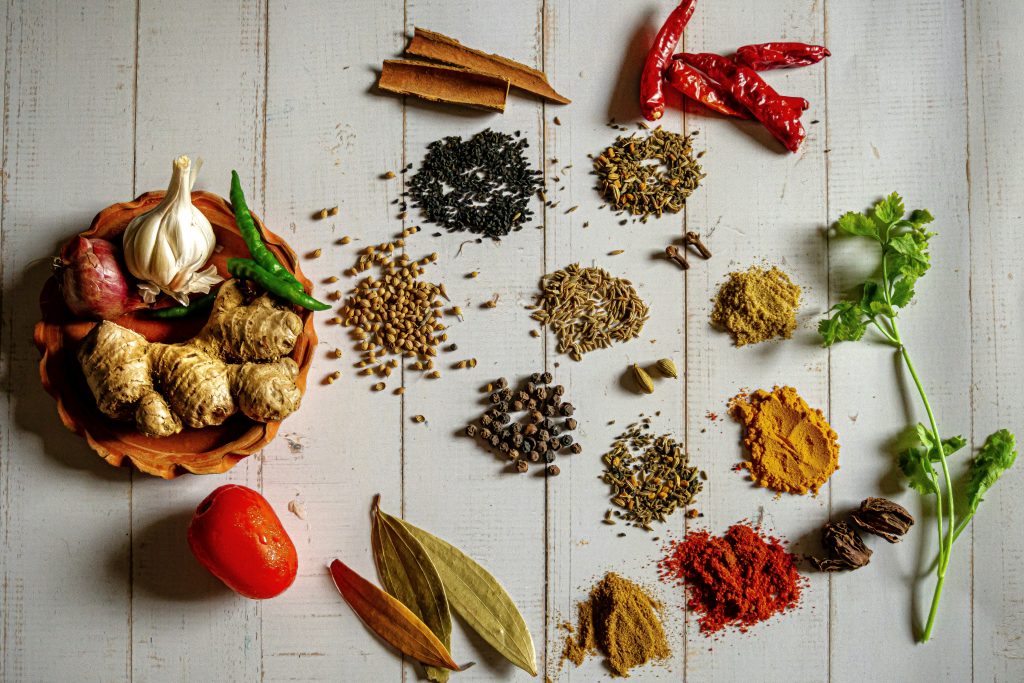
The Ritual of Dining: Exploring the Rich South Indian Delight
In South India, the dining experience is as significant as the food itself. Meals are traditionally enjoyed while sitting on the floor, with the food served on a banana leaf. This practice not only adds to the authenticity of the experience but also enhances the flavors of the dishes. Eating with your hands is encouraged, as it is believed to engage all the senses and create a more intimate connection with the meal.
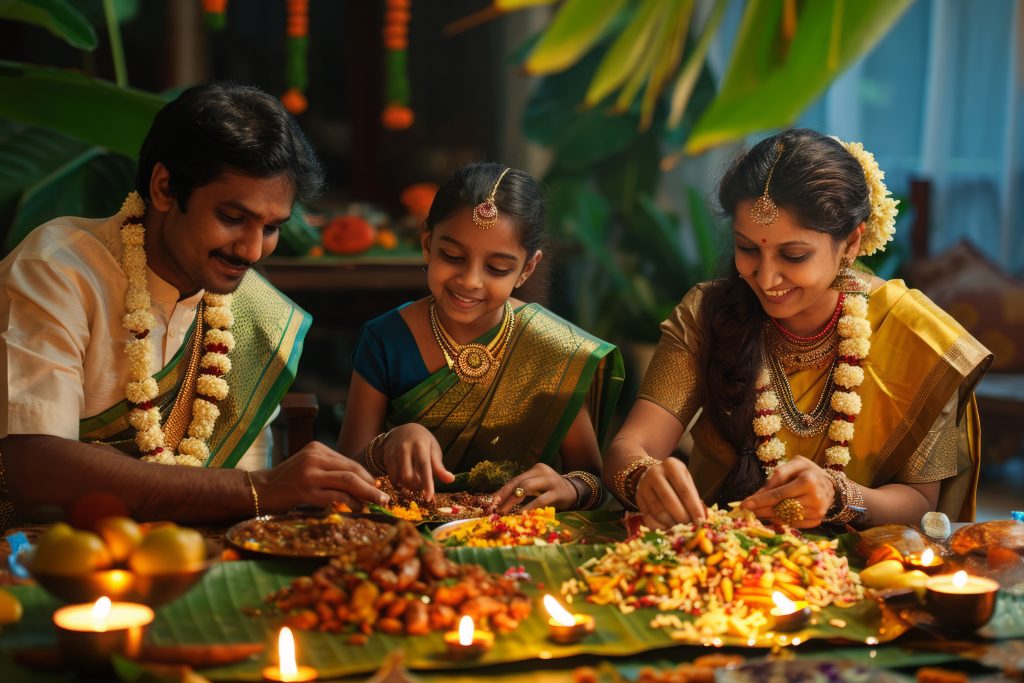
FAQs
- What are some key ingredients in South Indian cuisine?
South Indian cuisine prominently features spices such as mustard seeds, fenugreek, curry leaves, and dried red chilies. Other essential ingredients include coconut, tamarind, and rice.
- Is South Indian cuisine mostly vegetarian?
While South Indian cuisine is known for its extensive vegetarian options, there are also many delicious non-vegetarian dishes. The cuisine includes a variety of both vegetarian and non-vegetarian meals.
- What is dosa made of?
Dosa is crafted from a fermented mixture of rice and lentils.. It can be enjoyed plain or with various fillings, such as the popular masala dosa, which is filled with a spiced potato mixture.
- How is rasam different from sambar?
Rasam is a tangy and spicy soup made with tamarind, tomatoes, and spices, often served as a broth or with rice. Sambar, on the other hand, is a hearty stew made with lentils, vegetables, and a spice blend called sambar powder, typically served with rice, dosa, or idli.
- What is Kerala Sadya?
Sadya is a traditional vegetarian feast from Kerala served on a banana leaf. It includes a variety of dishes such as rice, sambar, avial, pachadi, and payasam. It’s commonly savored during celebrations and special events.
- What makes Hyderabadi biryani unique?
Hyderabadi biryani is renowned for its fragrant rice, marinated meat or vegetables, and a blend of aromatic spices. The slow-cooking technique used ensures that each grain of rice is infused with flavor.
Conclusion
South Indian cuisine is a vibrant mosaic of flavors, traditions, and culinary skills. From the crispiness of dosa to the comforting warmth of sambar, each dish reflects the region’s rich history and cultural evolution. Exploring South Indian food is more than just a culinary adventure—it’s a journey into a world where every meal celebrates heritage and flavor.
Whether you’re an experienced food enthusiast or simply curious about new tastes, South Indian cuisine offers a delightful journey for your palate. So, gather your ingredients, embrace the spices, and embark on your own exploration of the beautiful and diverse world of South Indian food.
South Indian delight awaits you, ready to captivate your senses with its rich and varied flavors.

Welcome to Merge Blog!
Dive into quick, nutritious recipes, expert health tips, local food finds, and the latest in nutrition. Let’s explore healthier living together!

I’m Divya Bharathi, the person behind MergeBlog. I’m a passionate food enthusiast sharing simple, nutritious recipes and tips for a balanced lifestyle. Join me on this delicious journey!
Divya Bharathi
SUBSCRIBE & FOLLOW
MUST-READ ARTICLES
Join the Newsletter
Dive into quick, nutritious recipes, expert health tips, local food finds, and the latest in nutrition. Let’s explore healthier living together!
